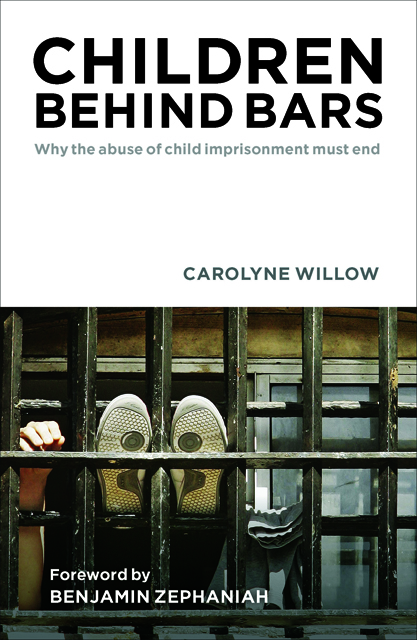Book contents
- Frontmatter
- Contents
- List of tables
- About the author
- Acknowledgements
- Preface
- Foreword by Benjamin Zephaniah
- one Introduction
- two ‘Things were not right at home’
- three ‘They just don’t listen’
- four ‘I think it’s quite like rape’
- five ‘I can’t breathe’
- six ‘What gives them the right to hit a child in the nose?’
- seven ‘We should be able to hug our families’
- eight ‘Every night I’m starving’
- nine Children were ‘given bags to urinate in’
- ten ‘The violence is unbelievable’
- eleven ‘Listen to the kids’
- twelve They shouldn’t be there
- Notes
- Index
three - ‘They just don’t listen’
Published online by Cambridge University Press: 15 April 2023
- Frontmatter
- Contents
- List of tables
- About the author
- Acknowledgements
- Preface
- Foreword by Benjamin Zephaniah
- one Introduction
- two ‘Things were not right at home’
- three ‘They just don’t listen’
- four ‘I think it’s quite like rape’
- five ‘I can’t breathe’
- six ‘What gives them the right to hit a child in the nose?’
- seven ‘We should be able to hug our families’
- eight ‘Every night I’m starving’
- nine Children were ‘given bags to urinate in’
- ten ‘The violence is unbelievable’
- eleven ‘Listen to the kids’
- twelve They shouldn’t be there
- Notes
- Index
Summary
John Joseph Peter Scholes was born in Sale, Greater Manchester, on 20 February 1986, the day the Soviet Union launched the Mir Space Station. His mother told me Joseph was quite a large baby and “very, very beautiful”. He grew into an extremely clever, enquiring child who loved nature and exploring National Trust buildings and museums; he was “interested in everything”. Unlike his two older sisters, who would sit for hours adorning My Little Ponies, Joseph was always active. Yvonne Bailey recalled her son removing the limbs from his Action Man – not from anger or malevolence but sheer curiosity. He found great pleasure in pulling objects apart and rebuilding them. Joseph was also very humorous. He would wear his mother’s hat and scarf and do “funny turns” when people came to the house. This fitted with his passion for the arts and music. At school, he was “sunny and popular”.
Joseph hated losing at family board games. Sundays at his granny’s house would see the whole family playing games like Monopoly and Frustration for hours. Yvonne said her mother “used to say she had repetitive strain because [games] would have to be played until Joseph had won”. Joseph’s granny “totally adored him”.
One of four children, Joseph belonged to a close family that ate meals together around the kitchen table, had regular holidays and greatly enjoyed each others’ company. One of his abiding loves was Lego and each Christmas he would ask for the biggest set, the castle or the pirate galleon, and devote the day to constructing his masterpiece with parental help. When I visited Yvonne at home she told me every year the family has recurring plans for what to do with Joseph’s many childhood possessions, including his Lego sets, which are “all tucked away in plastic boxes with lids”. Joseph died a month after his 16th birthday in a prison healthcare centre officially slated as ‘wholly inadequate’ less than a year before.
The final year of Joseph’s short life was the most difficult, Yvonne explained:
‘Words could not describe how awful it was, how frustrated he became with us all. I have tears in my eyes now, thinking about it because you wish you could go back in time and deal with it better, or differently….
- Type
- Chapter
- Information
- Children behind BarsWhy the Abuse of Child Imprisonment Must End, pp. 45 - 72Publisher: Bristol University PressPrint publication year: 2015



